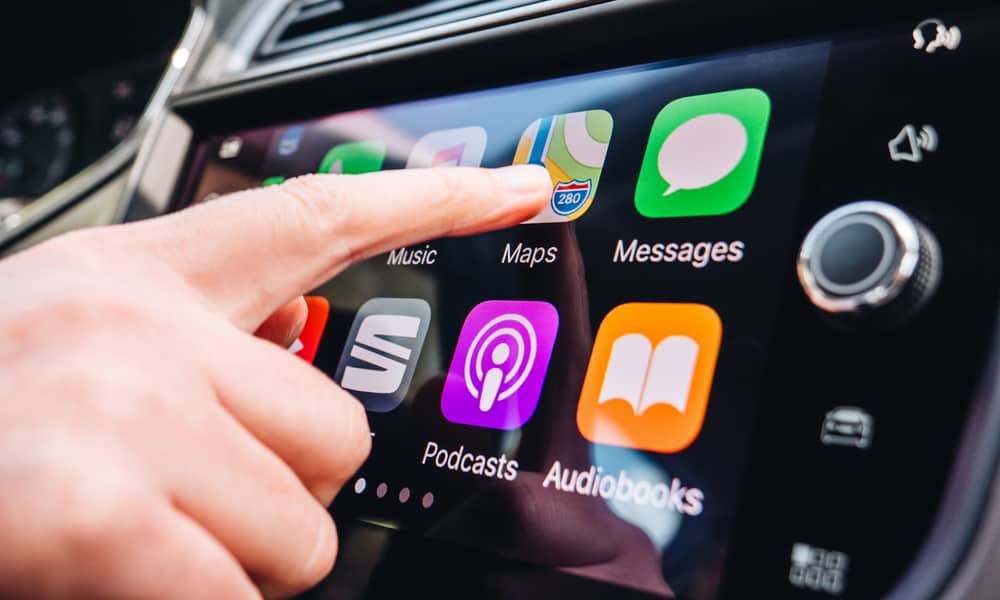Ford Plans to Keep Supporting CarPlay as GM Plans to Drop Apple’s System by 2035
 Credit: Hadrian / Shutterstock
Credit: Hadrian / Shutterstock
Toggle Dark Mode
Ford CEO Jim Farley told The Wall Street Journal’s Joanna Stern during an interview this week that Ford will not be dropping CarPlay support from its cars and trucks, due to the iPhone integration’s popularity with Ford customers.
“70 percent of our Ford customers in the U.S. are Apple customers. Why would I go to an Apple customer and say good luck?” he said.
Ford CEO @jimfarley98 says he’s sticking with Apple CarPlay and Android Auto and his reason makes A LOT of sense https://t.co/0ZEvV5icyD
— Joanna Stern (@JoannaStern) May 3, 2023
Farley was discussing carmakers that have either never offered CarPlay in their vehicles, like Tesla, and car companies that are planning to drop CarPlay and Android Auto from its, like General Motors. Earlier this year, GM announced it will phase out support for both CarPlay and Android Auto in its electric vehicles, beginning this year.
GM says it is planning to replace CarPlay and Android Auto with an in-house infotainment system being co-developed with Google, who also developed Android Auto. While GM will continue to offer CarPlay in its fuel-powered vehicles, it has plans to transition its entire lineup to all-electric by 2035.
GM’s announcement has proven to be unpopular with its iPhone-using vehicle owners. Many drivers appreciate an infotainment interface they are already using on their devices. CarPlay and Android Auto both offer familiar interfaces that many drivers have been using for years on their iPhone and Android smartphones.
GM’s decision to drop both CarPlay and Android Auto systems from its cars and trucks in favor of a homegrown infotainment system may be off-putting for many GM owners, at least initially. Longtime GM customers that may have been mulling the purchase of another auto company’s products may find the automaker’s decision to drop support for CarPlay and Android Auto the final nudge they needed to instead purchase or lease a Ford, Toyota, Honda, or another manufacturer’s vehicle.
It’s safe to say that at least one reason for GM and Tesla to both avoid CarPlay and Android Auto is money. Both automakers can use their proprietary infotainment center to collect data about drivers, which can be sold to nosy parties like advertisers. Plus, they’ll be able to directly charge subscription fees for various digital services. (“Sorry, we won’t tell you how to get to Houston, you didn’t pay your navigations subscription fee this month.”)
Farley also told Stern that there isn’t any money to be made in selling content to vehicle owners for consumption while driving their vehicles. Instead, he says Ford prefers to focus on safety, autonomy, security, and productivity features.
In terms of content, we kind of lost that battle 10 years ago. So like get real with it, because you’re not going to make a ton of money on content inside the vehicle. It’s gonna be safety, security, partial autonomy, and productivity in our eyes. So that relationship for content is between you, The Wall Street Journal, and the customer. I don’t want to get in the middle of that, but Tesla and other companies believe differently. They want to have complete control over the interior experience.
Apple last year announced its plans to roll out a next-generation version of the CarPlay experience in 2023. “CarPlay 2.0” will offer deeper integration with new vehicles made by manufacturers who continue to offer CarPlay in their cars and trucks.







